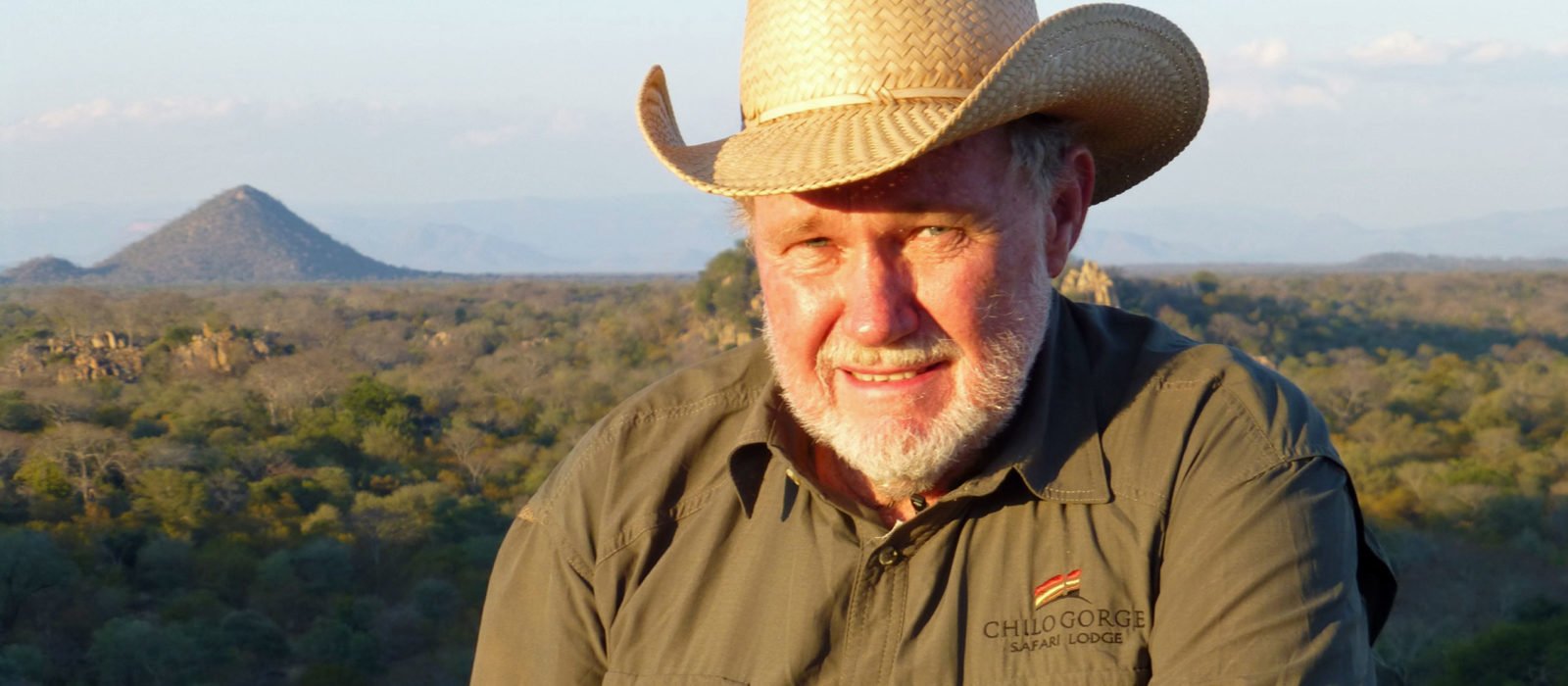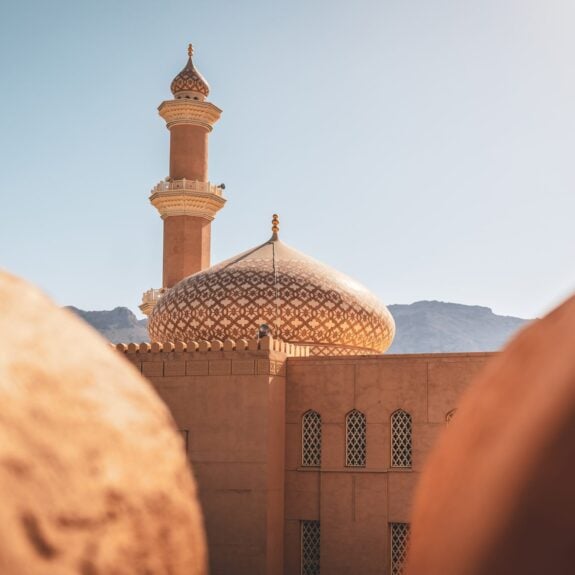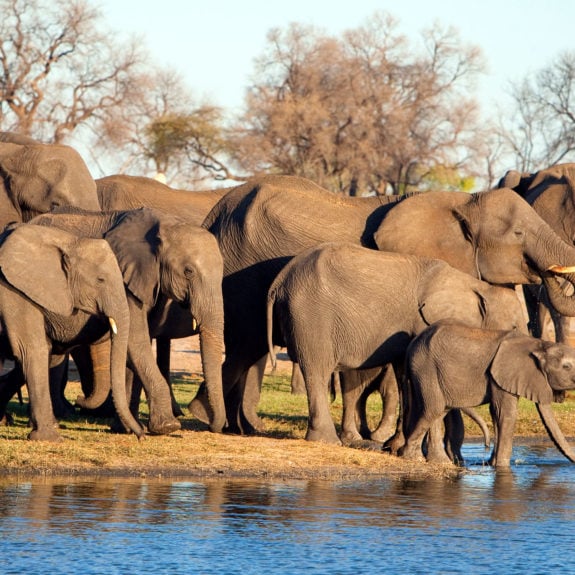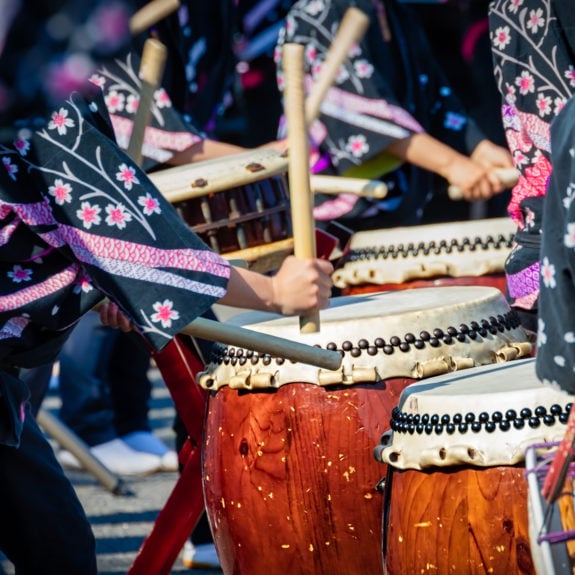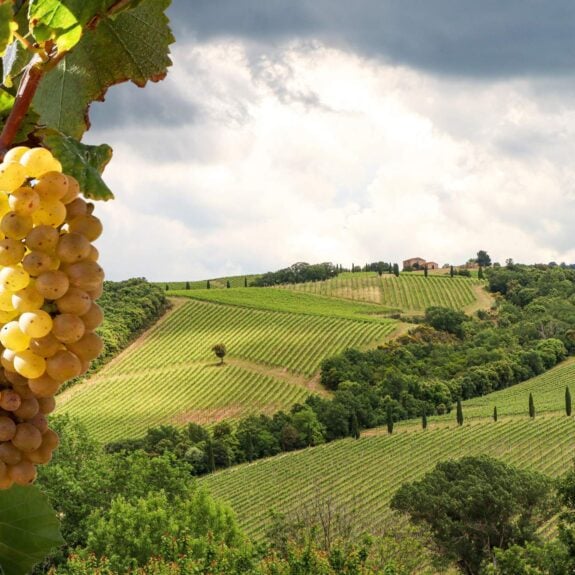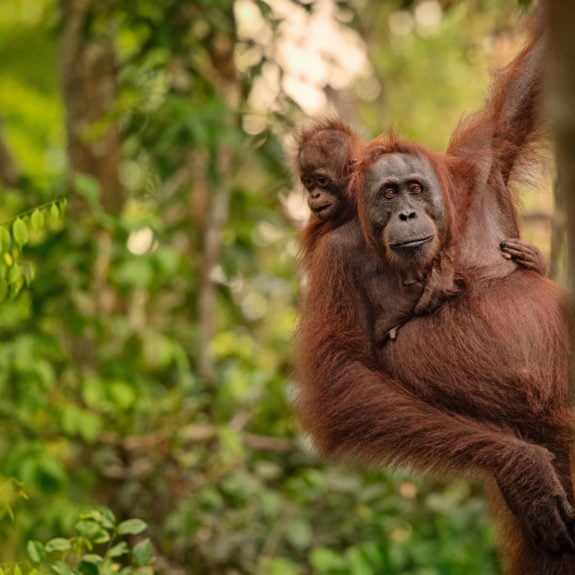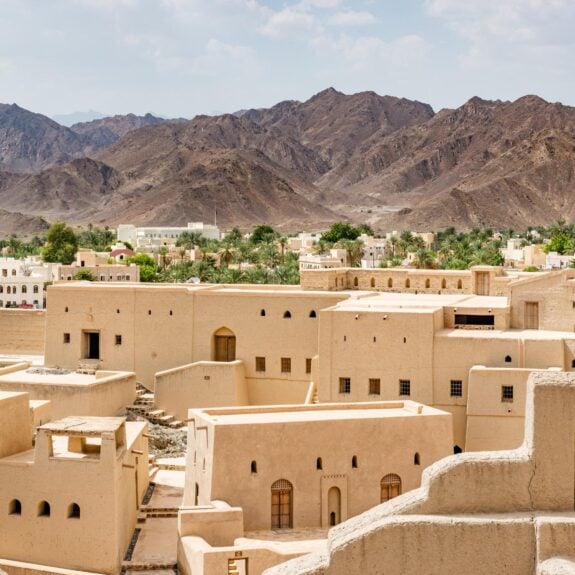Published on: May 28th, 2014
Last modified: December 16th, 2016
We speak to this legendary conservationist about winning the Tusk Lifetime Achievement Award for Conservation, what the key is to successful conservation in Zimbabwe and in Africa, his greatest successes and setbacks, and how he was influenced as a young boy by his Changana peers.
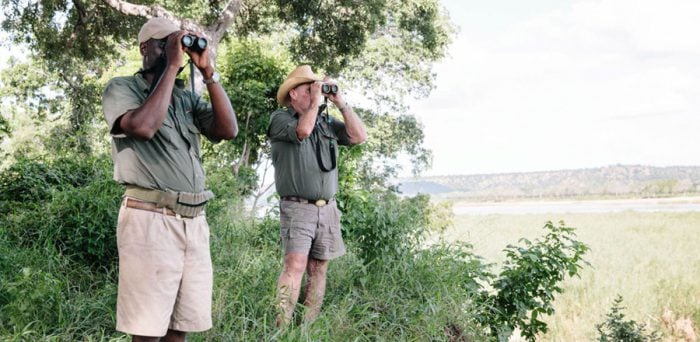
Growing up in Zimbabwe, who and what would you say had a hand in you becoming a guide and conservationist?
I consider it a privilege to have been born and raised in this truly wild environment.
My Changana peers were my constant companions, whose understanding of the diverse fauna and flora created an insatiable interest in my young mind.
Their ability to read paths and landscapes like most of us read the daily newspaper, to interpret who had passed the night before, who was the hunter and who became the meal, was phenomenal.
My mentor, barefoot professor, was a Changana friend called Musisinyani Thomas Chauke, a true naturalist whose knowledge and passion for the wild natural world was contagious. I consider it an honor and privilege to have spent many days and nights in the bush with him, learning and understanding basic bush law. This in turn led me to pursue an interest in conservation through local cultures, recognizing that in the final analysis, success will come down to a balance between humans and wildlife. The greatest challenge will be for space.
How did it feel collecting the Tusk Lifetime Achievement award?

It was truly a great honor and privilege to receive the Tusk Conservation Award at this prestigious event held in London on the 13th September 2013.
It was at this historical event that I receive the inaugural “Prince William Award for Conservation in Africa” In recognition of a life time commitment, kindly supported by Investec Asset Management.
It was humbling, challenging, encouraging. It was inspirational; it gave hope not only to me but to all who I have had the privilege of working with over many years.
What have been your greatest successes and setbacks in the fight for conservation?
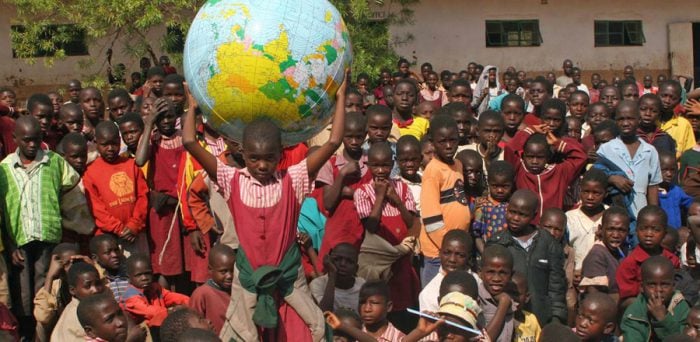
Some of my greatest successes I count are turning conflict in to cooperation between the Mahenye Community and the Gonarezhou National Park, participating in the process of pioneering a concept of co-existence between people and wildlife. Also the restoration of 350,000 hectares of degraded land, changing land use, restoring natural eco-systems and the restocking of the Save Valley Conservancy with all indigenous large mammal species including 600 elephants 60 Rhino (both black and white) and many other plains game species.
The greatest challenges I’ve faced have been the integration of the Save Valley Conservancy as an acceptable form of land use in to the Land reform program implemented by the Government of Zimbabwe in 2000. This once again underscores the competition for space. To achieve sustainable conservation communities need to be included. Wildlife tourism needs to contribute to sustainable development for neighbouring communities.
Do you still enjoy guiding guests and tracking wildlife with them in the Save Valley Conservancy and Gonarezhou?
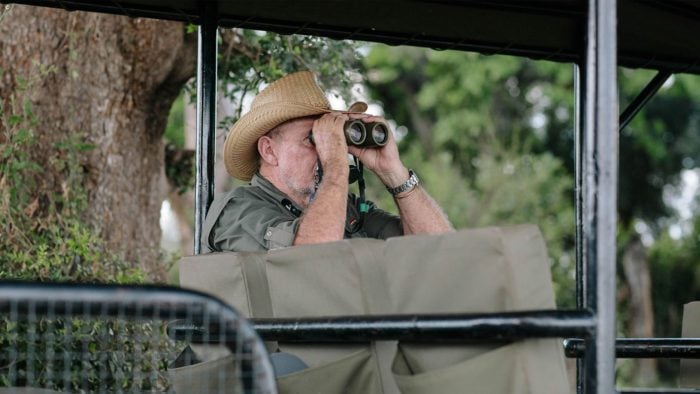
It is always a pleasure meeting and sharing some of these unique wilderness areas with those that enjoy and appreciate the true values of our natural heritage and biodiversity.
Watch the Chilo Gorge Safari Lodge and Clive’s inspiring video on how conservation starts with the community:
You say people come first in conservation, can you give us some examples of where this has worked?
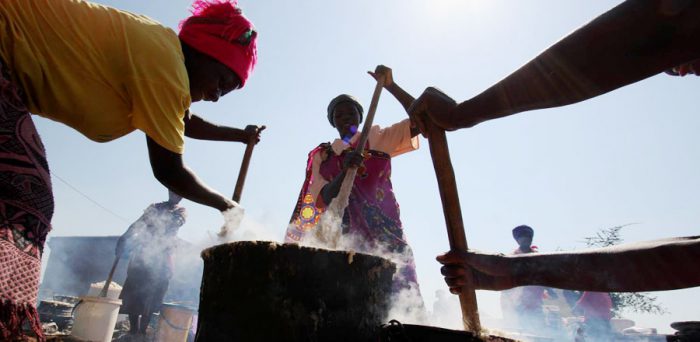
A good example is the Mahenye Community Project. This evolved out of conflict between a local Changana community and the Gonarezhou National Park over natural resource use and competition for space. The concepts that emerged out of this conflict later became the core principals incorporated in the CAMPFIRE programme, which now has seen over forty other districts in Zimbabwe implement this programme. Indeed many of the concepts have been copied or modified by other southern African countries. Whilst there will always be new challenges we need to appreciate that this is evolution in progress in the quest of achieving sustainable development. What has been recognised is that this experiment turned conflict into cooperation for the benefit of both man and beast through coexistence in a fragile environment.
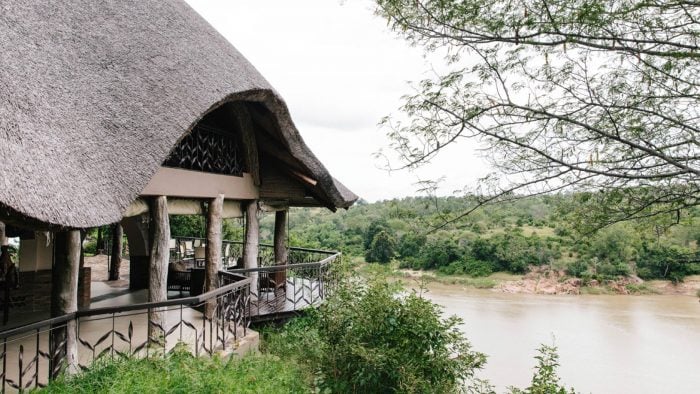
Another is Chilo Gorge Safari Lodge, which is an example of a partnership between the Mahenye Community and the private sector, this partnership has seen the development of a school, assisting in the maintenance of the local clinic, and employs 34 members of the community in the lodge, this has a direct benefit of contributing to the local cash flow through the monthly wages paid to staff. This partnership has recently undertaken a ground breaking project with the support of the European Union to establish the first community conservancy, where the community has decided to create the Jamanda Wilderness, an area of approximately 7000 hectares which shares a 10 kilometer boundary with the Gonarezhou National Park. This will see the community benefiting directly from wise land use and conservation through tourism.
Can you tell us about the CAMPFIRE program?
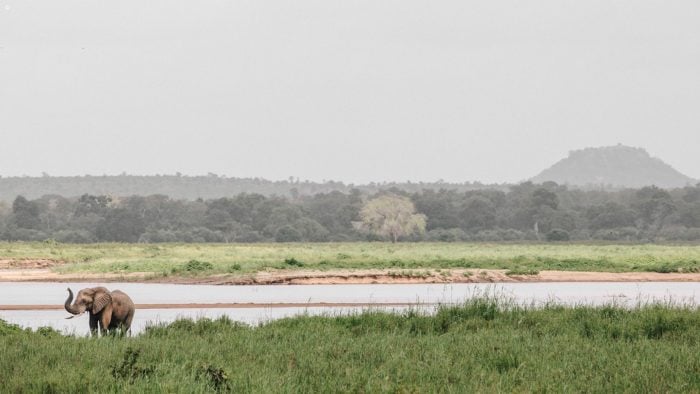
CAMPFIRE – stands for “Communal Areas Management Program For Indigenous Resources”. This created an opportunity to empower communities and to involve them in taking responsibility in managing their natural resources through sustainable use for the benefit of the community at large whilst ensuring the protection of the environment.
The principals are sound, there have been many successes, the danger is, where there is money and power higher political structures could possibly hi-jack this program by imposing levies and taxes which would reduce the incentive to the producer communities.
What can Jacada guests do to contribute to conservation whilst staying at Chilo Gorge Safari Lodge? And in a wider sense, how do you think tourism to Africa can do more to help conserve its wildlife and support local communities?
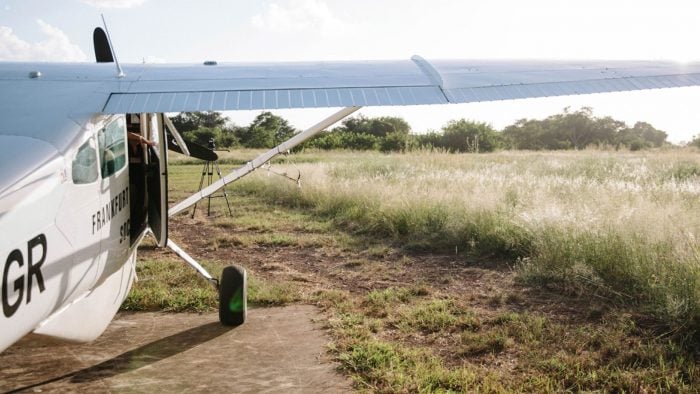
First and foremost guest contribution is through choosing to stay at Chilo Gorge Lodge ; a higher occupancy means more benefits to the community.
Where aesthetic values are not understood by many cultures, where the daily struggle is providing for the family needs, and improving livelihoods is the focus of the community leadership.
Aesthetic values are considered a luxury, if we want success in protecting some of these unique ecosystems and landscapes then we all need to consider the basic 3C principals:
Conservation – Communities – Commerce
Commerce through tourism will contribute to creating the necessary incentives to communities to conserve global assets, this is achieved through partnerships which includes the tourist. The progressive tourist should research and chose lodges where these smart partnerships continue to contribute to the maintenance of our delicate ecosystems whilst understanding the fine line between human needs and the conservation of the environment for the benefit of future generations.
And finally, do you have a favourite animal or bird of the African bush?
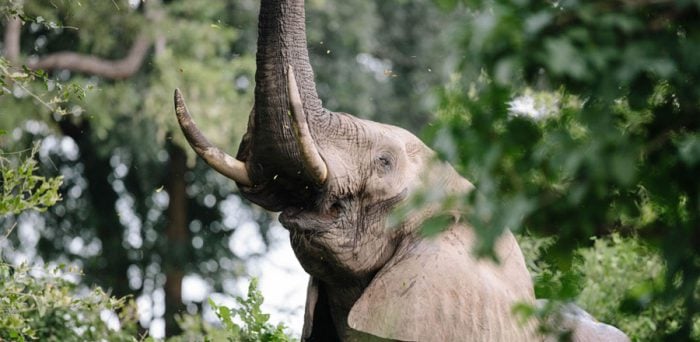
This regrettably is a question I can’t answer, with over 50 mammal and 450 bird species, added to an unknown number of insects, reptiles and aquatic life, all are special in their own way, the more one tries to understands each species the more you realize how unique and different they are, and how little we know about them. The role each species plays in maintaining ecological balances is what is special.
We can arrange for Jacada guests, who request it in advance, to be guided personally by Clive during their stay at Chilo Gorge Safari Lodge. Speak to our Africa team today for more details.
